Lily and Hope with Faith and Jason
Their Extraordinary and Unexpected Story
 Lily with dirt on her nose from digging a den in 2009
Lily with dirt on her nose from digging a den in 2009
“It’s me, bear” said Dr. Lynn Rogers as he approached the den of Lily, a 2-year-old mother-to be, on January 8, 2010. L Lily in her den 1-11-10ily watched trustingly as researchers placed a webcam in her den and Doug Hajicek’s international team of technologists connected her to the internet to be viewed 24/7. Unexpectedly, Lily went viral online. Within 2 days, she was the number 1 search topic on Google.
Lily in her den 1-11-10ily watched trustingly as researchers placed a webcam in her den and Doug Hajicek’s international team of technologists connected her to the internet to be viewed 24/7. Unexpectedly, Lily went viral online. Within 2 days, she was the number 1 search topic on Google.  Hope's eyes open! 3-17-10Lily was about to provide the world with a window into the least-studied aspect of bear behavior—the hidden world of hibernation, including the birth and early care of cubs. Most of what she would reveal was new to science.
Hope's eyes open! 3-17-10Lily was about to provide the world with a window into the least-studied aspect of bear behavior—the hidden world of hibernation, including the birth and early care of cubs. Most of what she would reveal was new to science.
When Lily gave birth to her daughter Hope on January 22, she refuted the old belief that hibernating bears give birth in their sleep. Viewers in 132 countries saw her prepare her den and go through 22 hours of teeth-clenching labor. They cheered Lily on as she tenderly welcomed this tiny female cub. They saw her place Hope under her body to nurse and breathe warmth onto her day and night through the coldest weeks of winter.
 Lily emerges 3-24-10In early March, Hope opened her eyes and widened her world. She began socializing with Lily through gentle play and a bonding activity called reciprocal tongue-licking. As she became more mobile, she climbed on Lily and snuggled into her fur.
Lily emerges 3-24-10In early March, Hope opened her eyes and widened her world. She began socializing with Lily through gentle play and a bonding activity called reciprocal tongue-licking. As she became more mobile, she climbed on Lily and snuggled into her fur.
Viewers young and old became intrigued with Lily’s gentle play, sweet motherly sounds, and constant care that were so similar to the loving care of human parents. They made Lily and Hope part of their daily lives, watching them at home, at work, and in hundreds of schools. Tiny Hope 4-2-10
Tiny Hope 4-2-10
Viewers saw Lily react defensively to nearby moose and wolves but calmly accept researchers she had learned to trust. They saw her as sensitive and discerning—not the ferocious animal they had believed bears to be.
On April 1, Lily and Hope left their den. About a month and a half later, Lily developed a little-known physical condition that dramatically changed their lives and tore at the hearts of all who watched. For Lily, a single cub could not suckle enough to prevent estrus and ovulation. 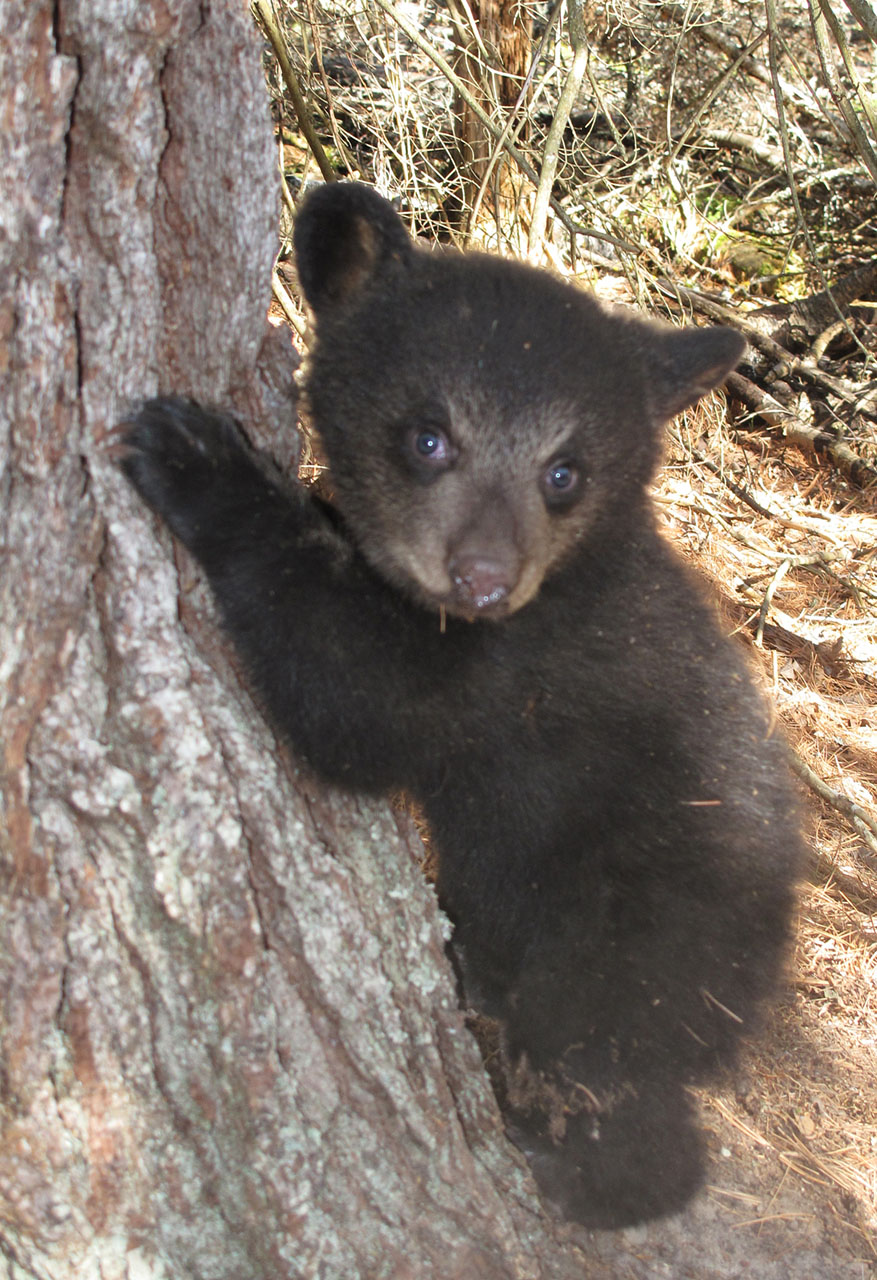 Hope 4-8-10The result was a hormonal conflict that left her helplessly torn between mothering and mating during the May-June mating season.
Hope 4-8-10The result was a hormonal conflict that left her helplessly torn between mothering and mating during the May-June mating season.
On May 21, while Hope slept high in a tree, Lily left her and followed the tracks of a male.
 Hope 4-18-10Hope disappeared. Researchers, residents, and the Duluth Rescue Squad searched day and night to find Hope before she starved to death. After 5 days, as Rogers was in the woods telling a reporter he feared the worst, his cell phone rang.
Hope 4-18-10Hope disappeared. Researchers, residents, and the Duluth Rescue Squad searched day and night to find Hope before she starved to death. After 5 days, as Rogers was in the woods telling a reporter he feared the worst, his cell phone rang.
 Lily and Hope 4-20-10Hope had been found! Rogers and his team hurried to the scene and brought Hope to Lily. When they saw each other, Hope’s bawling eagerness to nurse and Lily’s sweet motherly grunts were the most moving animal emotions Rogers had ever experienced. Lily and Hope spent the next day playing and nursing, but little Hope was moaning at times. She was weakening. Lily had little milk. Researchers and nutrition-expert viewers created a formula that energized Hope and put life back into her eyes.
Lily and Hope 4-20-10Hope had been found! Rogers and his team hurried to the scene and brought Hope to Lily. When they saw each other, Hope’s bawling eagerness to nurse and Lily’s sweet motherly grunts were the most moving animal emotions Rogers had ever experienced. Lily and Hope spent the next day playing and nursing, but little Hope was moaning at times. She was weakening. Lily had little milk. Researchers and nutrition-expert viewers created a formula that energized Hope and put life back into her eyes.
 Hope resting near Lily - April 2010
Hope resting near Lily - April 2010
 Tuckered out 4-28-10 Tuckered out 4-28-10 |
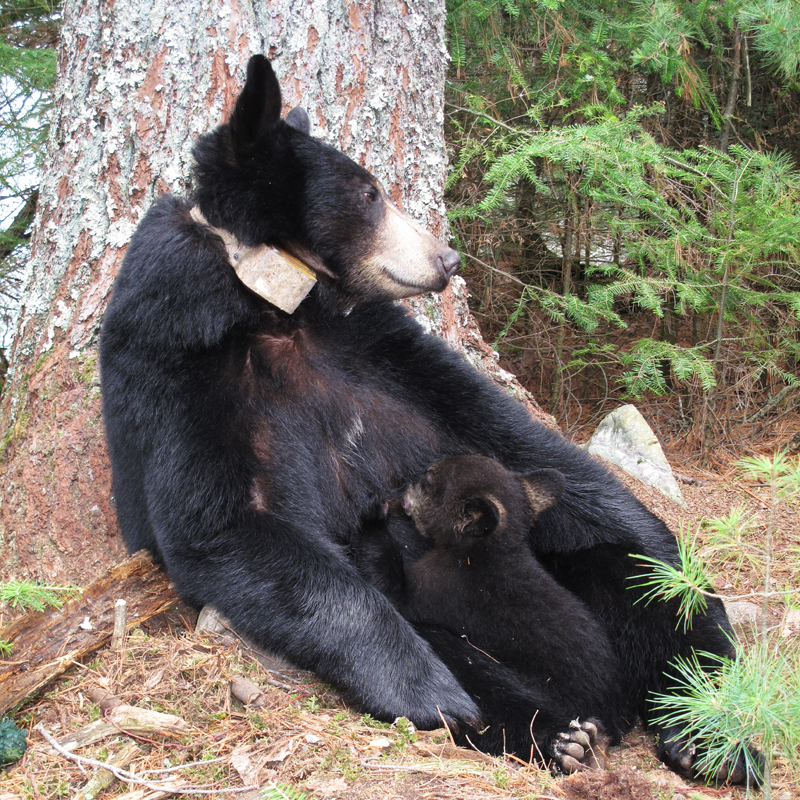 Nursing 5-3-10 Nursing 5-3-10 |
 Hope's blue eyes 5-10-10 Hope's blue eyes 5-10-10 |
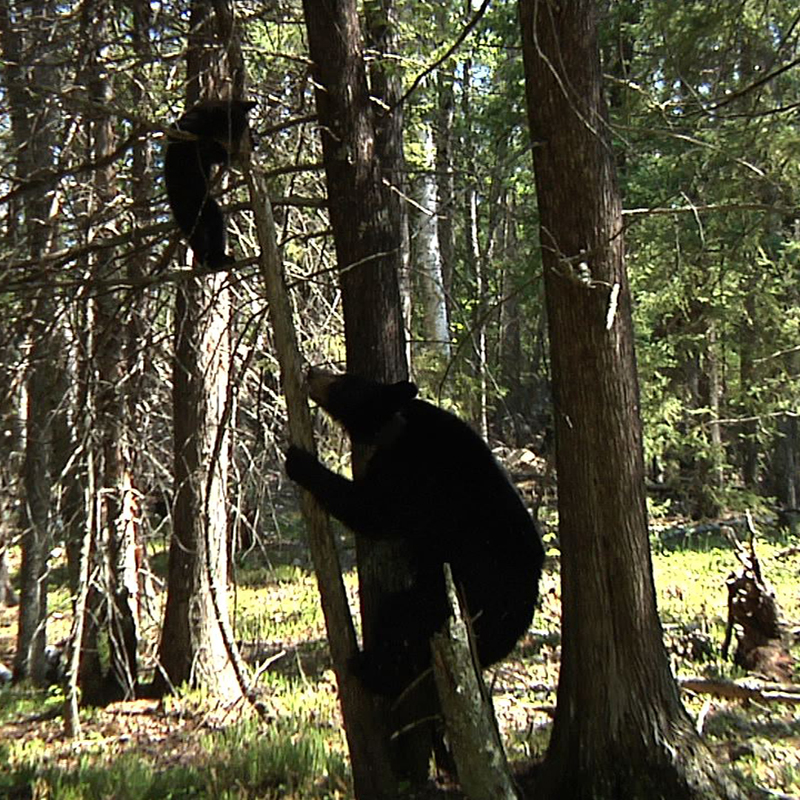 Playing in the trees 5-18-10 Playing in the trees 5-18-10 |
But Lily was still conflicted by hormones. She abandoned Hope again on May 31—this time for six weeks as she traveled miles away to find a mate.
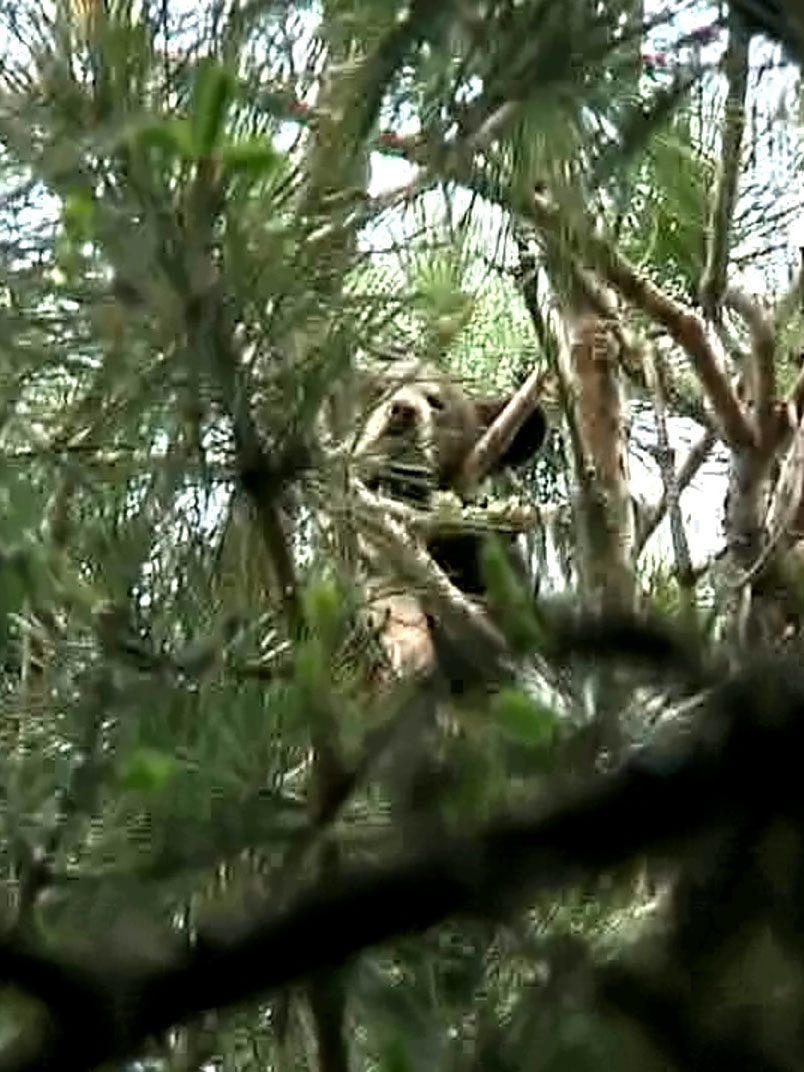 Hope asleep in a tree 5-21-10Through trail cams and a small radio collar, researchers continued to find and feed Hope. They noticed she was spending most of her time in places she had been with Lily.
Hope asleep in a tree 5-21-10Through trail cams and a small radio collar, researchers continued to find and feed Hope. They noticed she was spending most of her time in places she had been with Lily.
 Lily on the move 5-23-10Finally, mating season ended. On July 11, Lily returned to those places and the two connected. Lily once again became a devoted, attentive mother. Her milk returned. She nursed Hope the rest of the summer, in their den that fall, and even as she was giving birth to Faith and Jason on January 21.
Lily on the move 5-23-10Finally, mating season ended. On July 11, Lily returned to those places and the two connected. Lily once again became a devoted, attentive mother. Her milk returned. She nursed Hope the rest of the summer, in their den that fall, and even as she was giving birth to Faith and Jason on January 21.
Mixed-age litters had been reported, almost always with only one older cub, but how the cubs interacted was unknown. Hope nursed beside Faith and Jason and played with them as a sibling and as if she were a second mother.
When the family left the den on April 8, they entered an area criss-crossed with coyote tracks. Sadly, Jason was bitten on the head and on April 12 died from a brain infection. Without her brother, Faith turned to big sister Hope. Throughout the summer, they played frequently and snuggled together when resting. When Faith strayed, Hope kept a watchful eye on her.
 Hope found! 5-26-10The September bear-hunting season brought the annual concern that research bears could be lost. Sadly, on September 16, Hope visited a hunter’s bait near where the family was resting. Her death spread grief around the world.
Hope found! 5-26-10The September bear-hunting season brought the annual concern that research bears could be lost. Sadly, on September 16, Hope visited a hunter’s bait near where the family was resting. Her death spread grief around the world.
Unable to replace Hope, Faith rested alone and seldom, if ever, played. Finally, that winter, she began playing with Lily in their den. Faith grew up to establish a distant territory of her own. She has seldom been seen but was observed with 2 male cubs in 2015. Lily and Hope reunion
Lily and Hope reunion
5-26-10
Lily raised 3 more litters of 2 or 3 cubs by 2018.
Over the years, Lily and Hope’s viewers connected through social media and gatherings around the world. The first official gathering in Ely was named ‘Lily the Bear Day’ by the Ely City Council. Viewers formed teams to record scientific data and aid educational outreach.
Rogers is thankful for these dedicated citizen scientists who grew to share his love of bears as he and they learned together—directly from the bears. He is grateful for the technology teams who enabled the bears to change attitudes around the world. Finally, as always, he says, “Thank you bears.”
Lily lives on!
Click to watch videos of Lily and Hope in their den - 2010
Click to watch video of Lily and Hope 5-21-10 through 5-29-10
Click to watch video of Lily and Hope 5-31-10 through 7-12-10
 Hope alone again Hope alone again6-4-10 |
 High in a red pine High in a red pine6-4-10 |
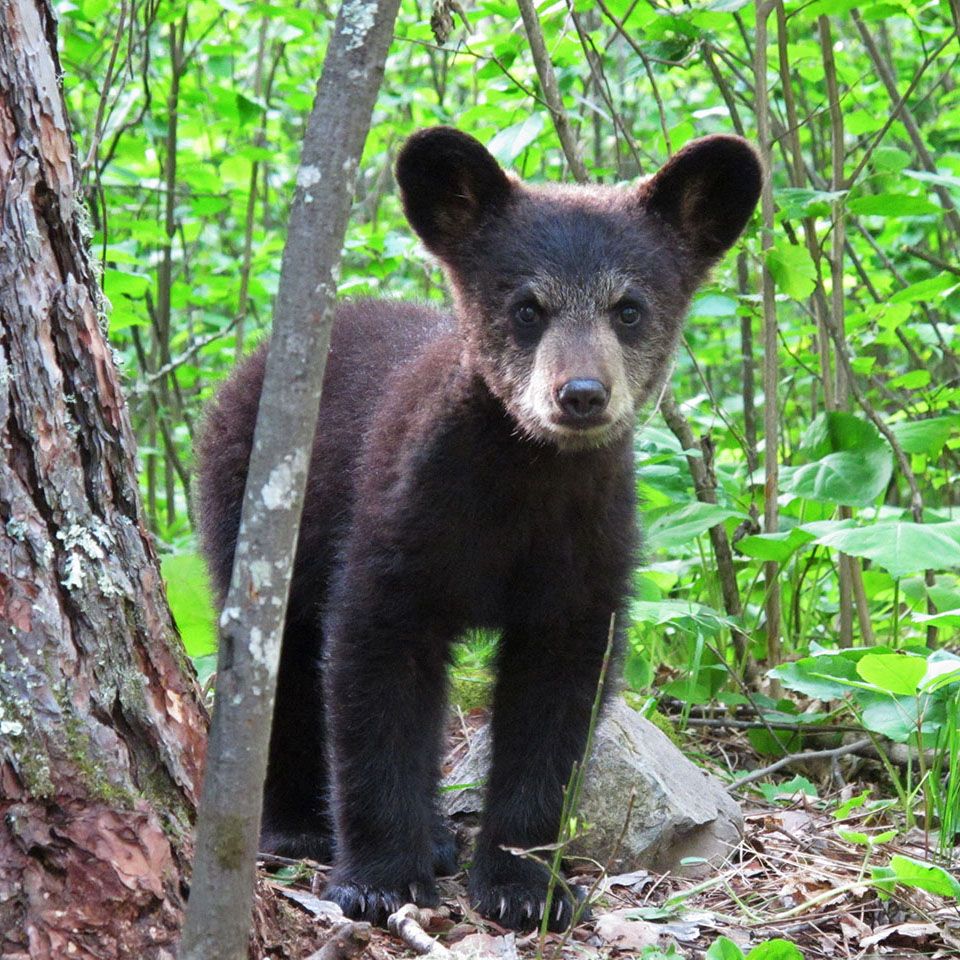 Alert Alert6-7-10 |
 Eating mealworms Eating mealworms6-7-10 |
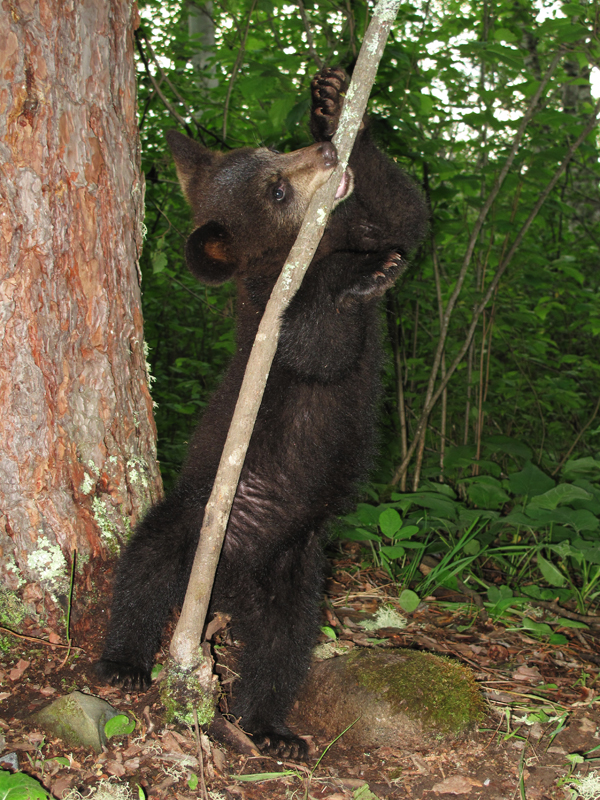 Playful6-13-10 Playful6-13-10 |
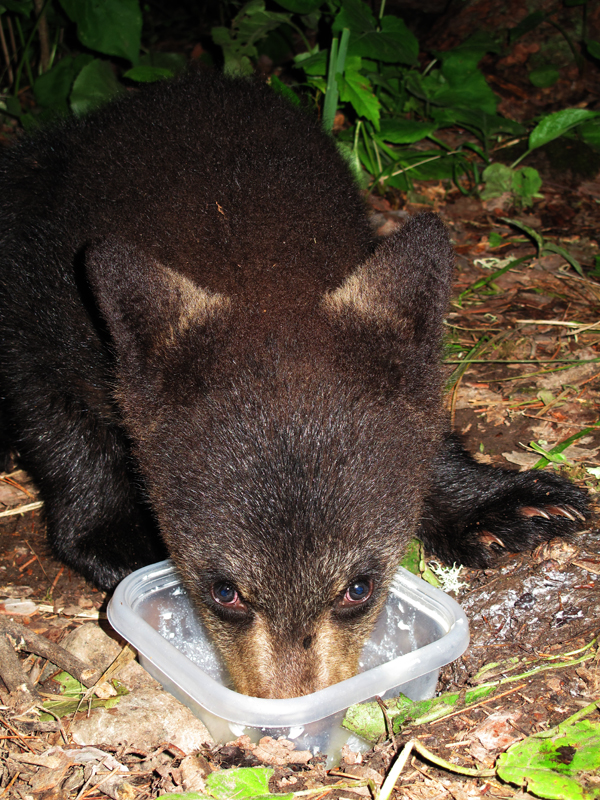 Supplemental food Supplemental food6-13-10 |
 Hope Hope6-20-10 |
 Trail Cam capture Trail Cam capture6-20-10 |
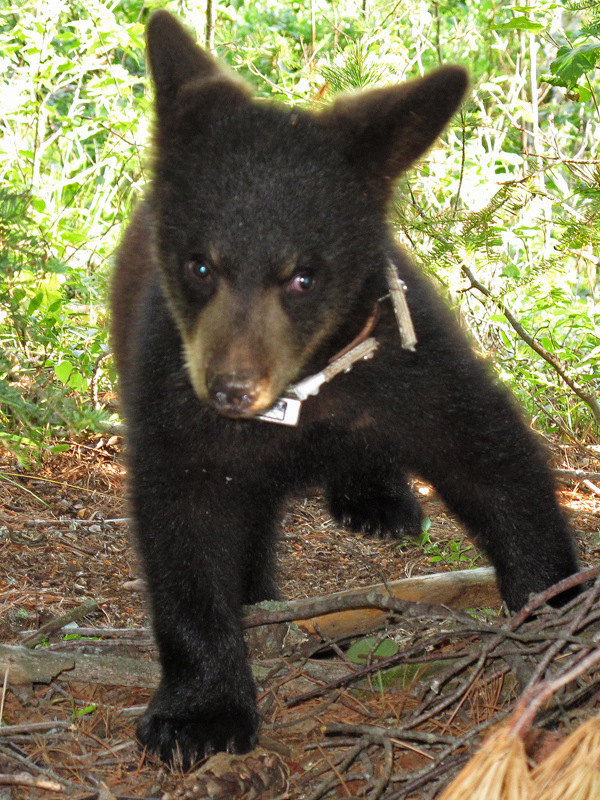 Hope Collared6-20-10 Hope Collared6-20-10 |
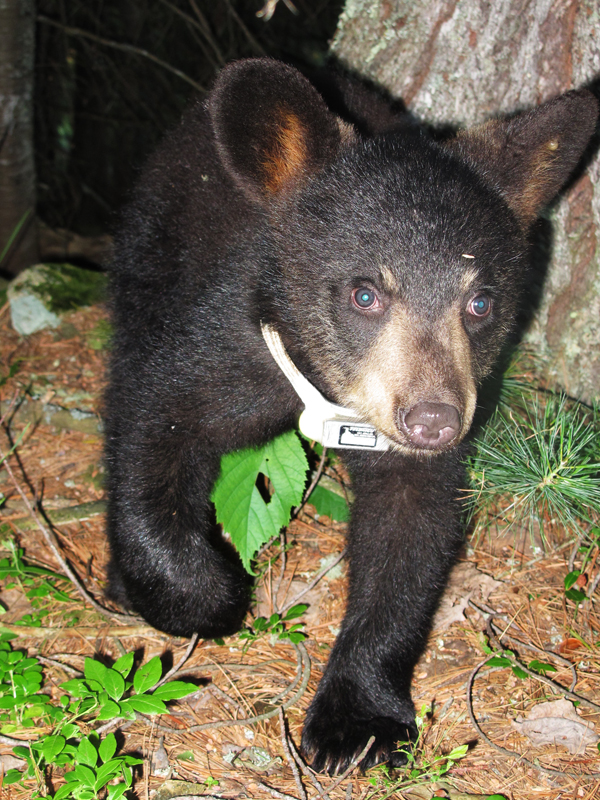 Still on her own Still on her own6-29-10 |
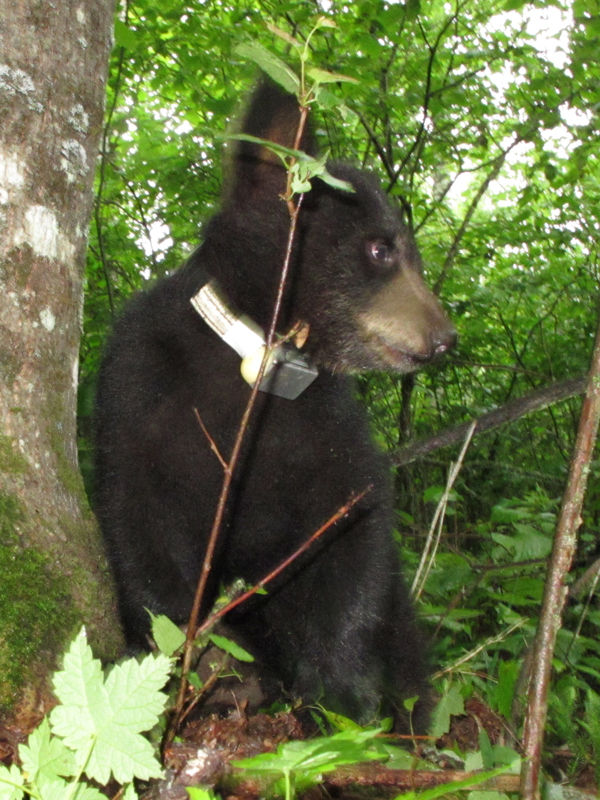 Hope alone Hope alone7-1-10 |
 In a pine In a pine7-3-10 |
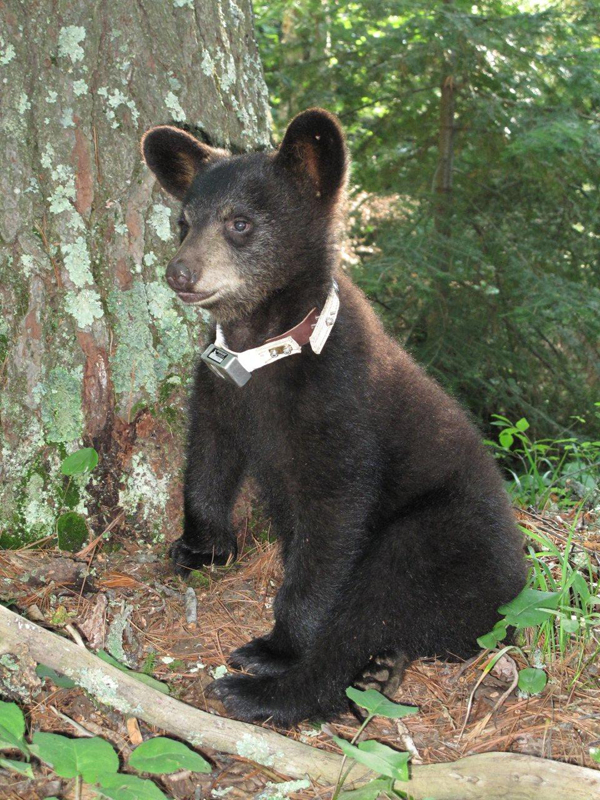 Watchful Hope Watchful Hope7-6-10 |
 Reunited!7-12-10 Reunited!7-12-10 |
 Heading off together7-12-10 Heading off together7-12-10 |
 Lily and Hope7-27-10 Lily and Hope7-27-10 |
 Hope thrives8-18-10 Hope thrives8-18-10 |
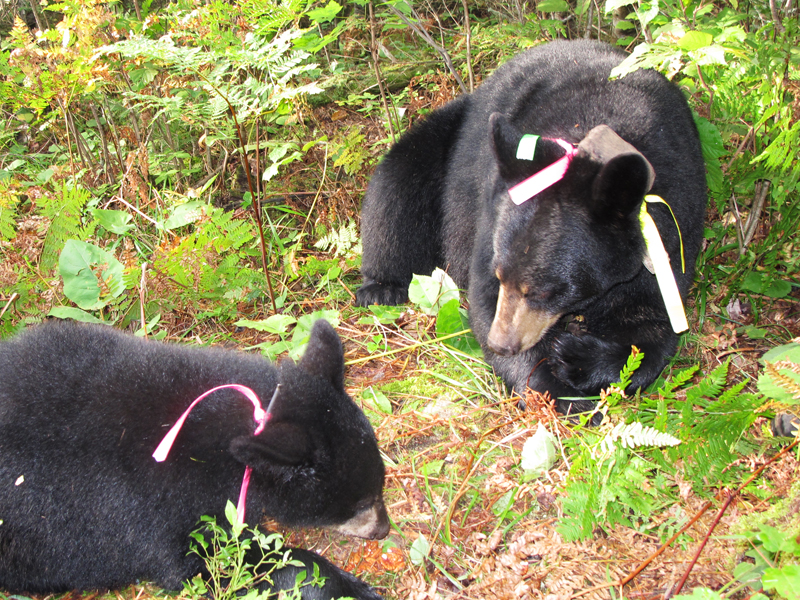 Nearing Autumn8-30-10 Nearing Autumn8-30-10 |
 Lily and Hope Lily and Hope9-24-10 |
 Slowing down Slowing down9-27-10 |
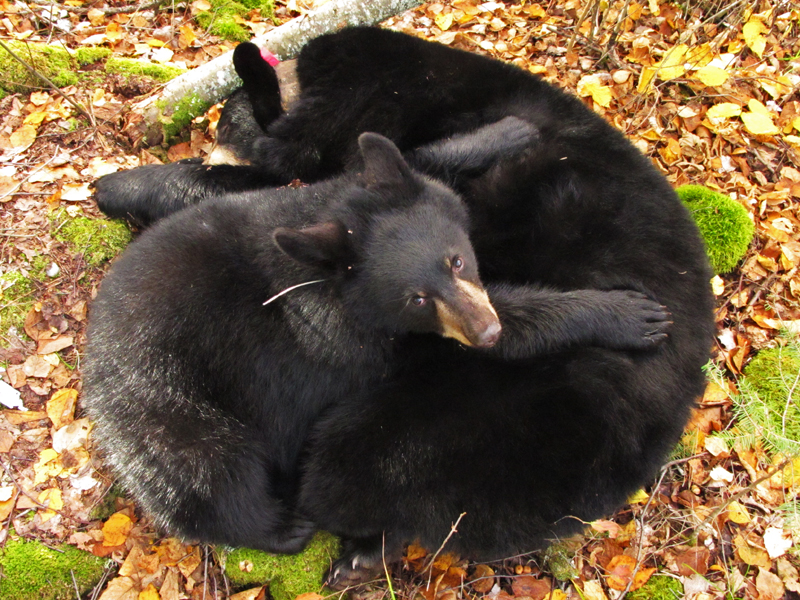 Hope snuggles Lily Hope snuggles Lily9-28-10 |
 Near the den Near the den10-22-10 |
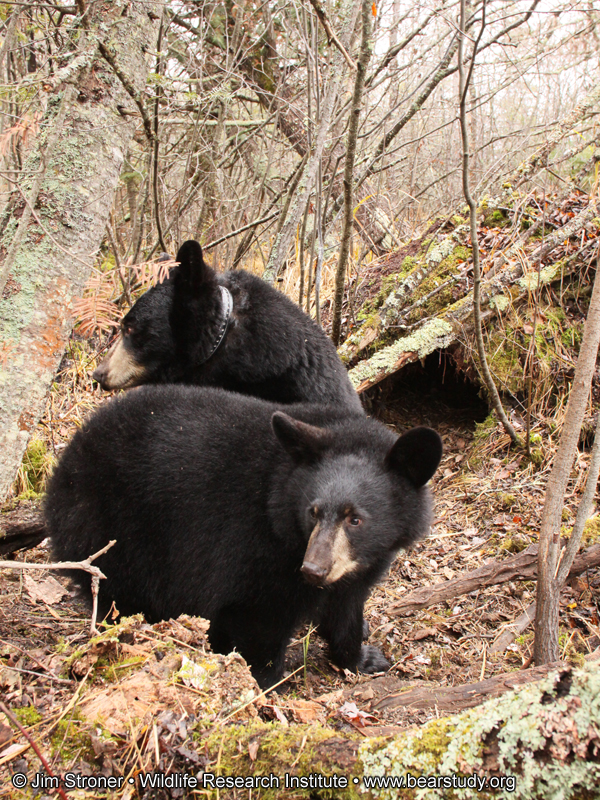 By the den By the den10-25-10 |
 Lily, Hope, Faith and Jason - 2011
Lily, Hope, Faith and Jason - 2011
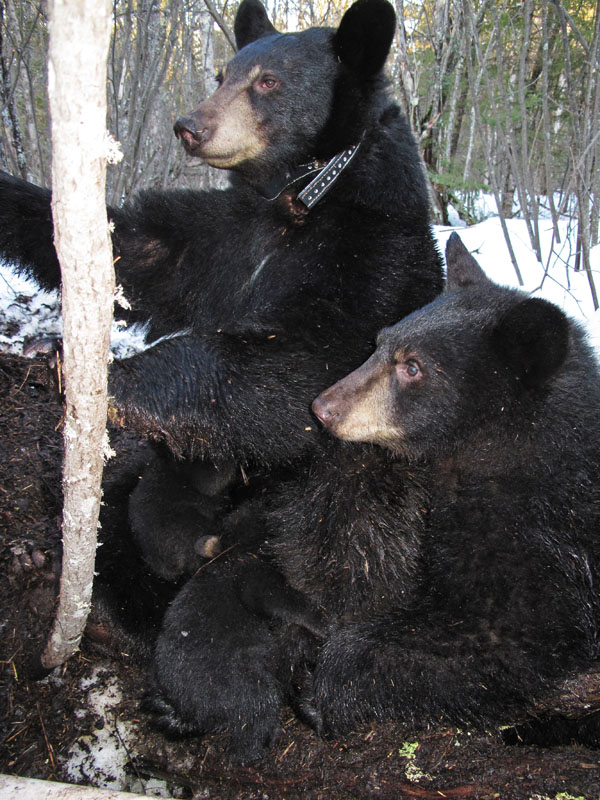 3-17-11 3-17-11Family of four |
 3-11-11 3-11-11Out of the den |
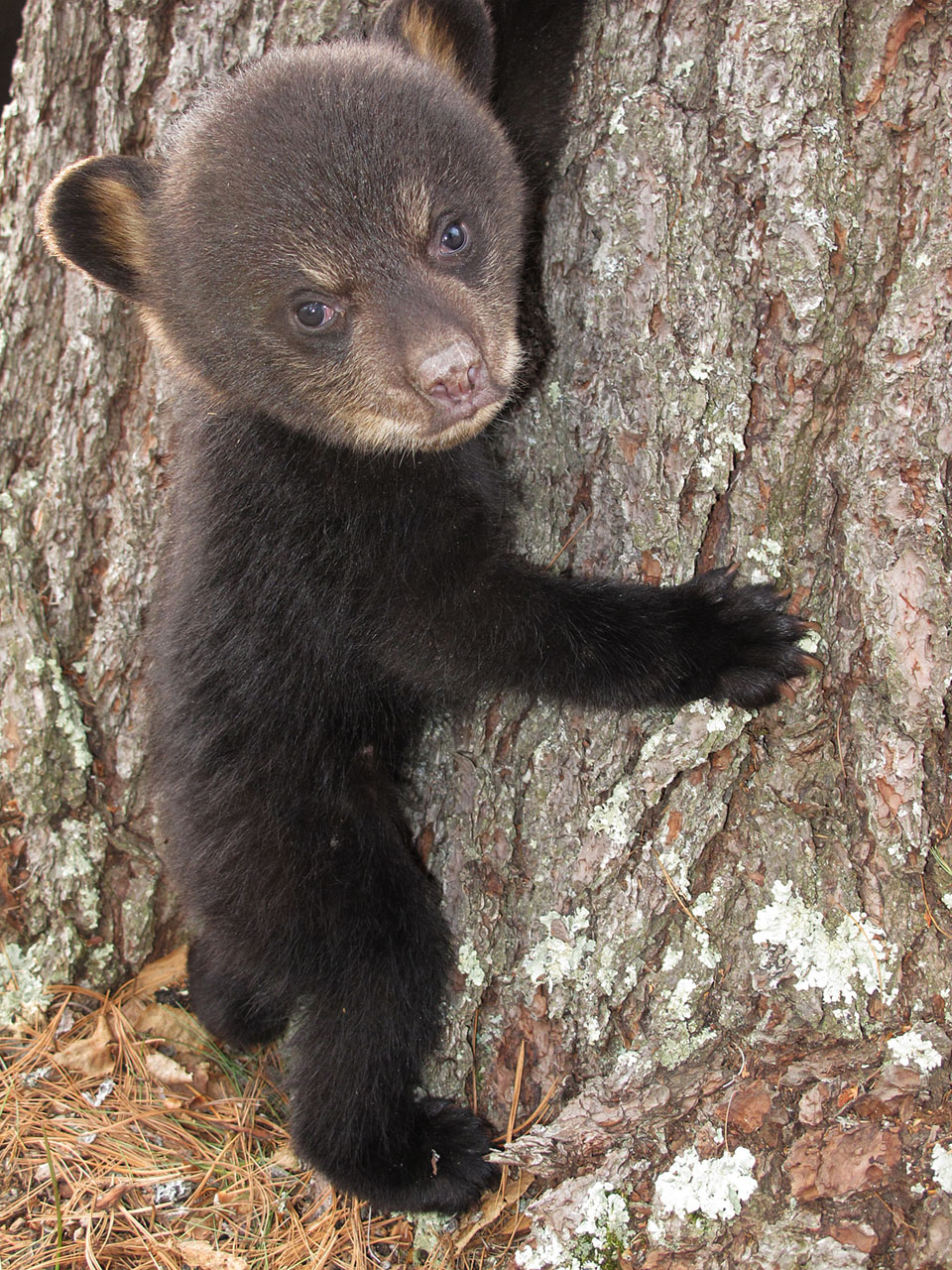 4-8-11 4-8-11Jason |
 4-8-11 4-8-11Lily and Faith |
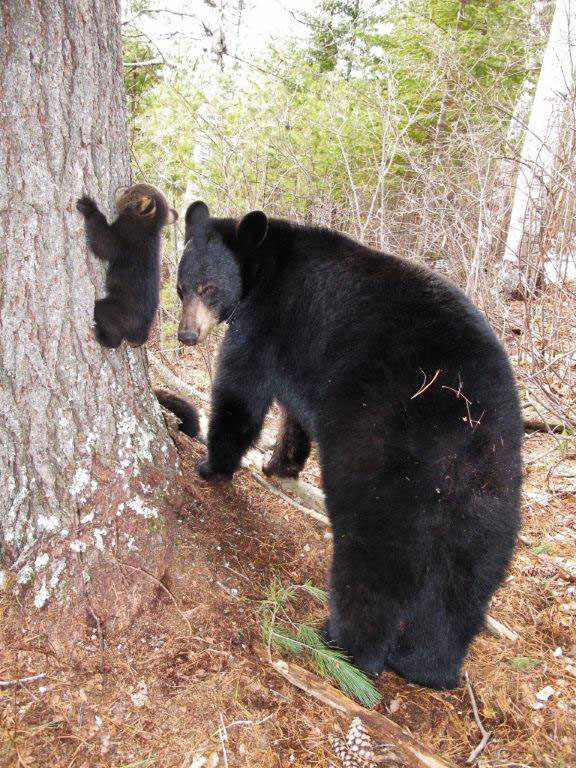 4-8-11 4-8-11Lily and Jason |
Click to view video of Lily, Hope and Faith playing - June 2011
 Lily Hope and Faith - June 3, 2011
Lily Hope and Faith - June 3, 2011  Lily Hope and Faith walking away - June 3, 2011
Lily Hope and Faith walking away - June 3, 2011
 Faith Faith4-20-11 |
 Hope and Faith Hope and Faith4-22-11 |
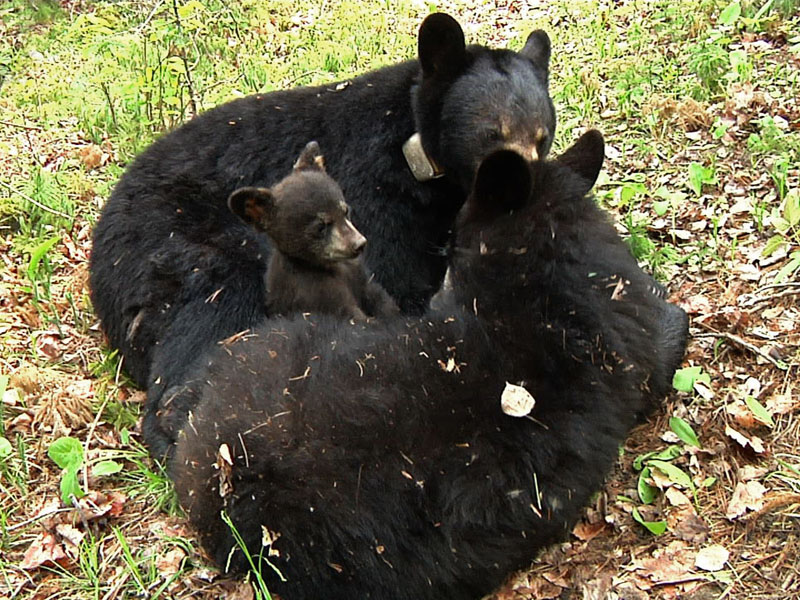 Lily, Hope and Faith Lily, Hope and Faith6-3-11 |
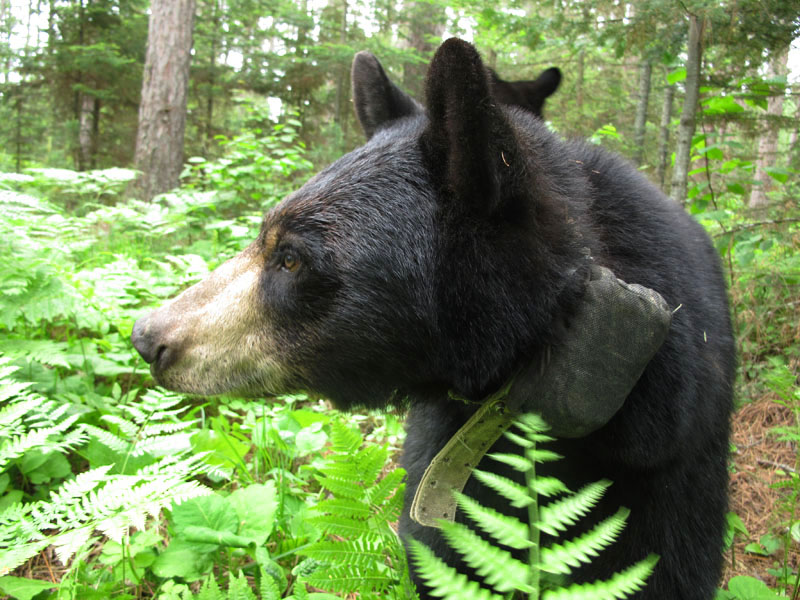 Lily Lily6-18-11 |
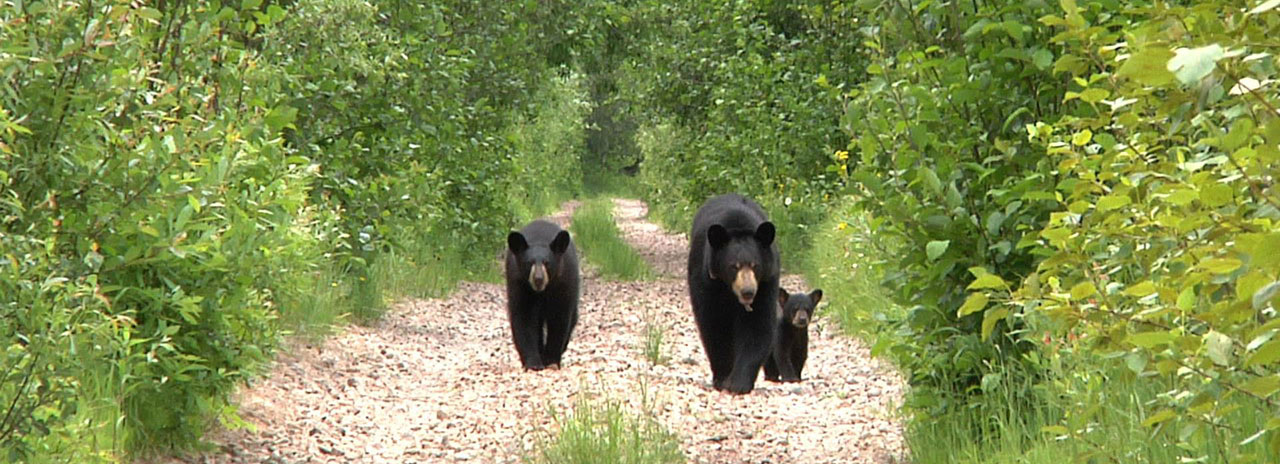 Lily Hope and Faith - June 21, 2011
Lily Hope and Faith - June 21, 2011
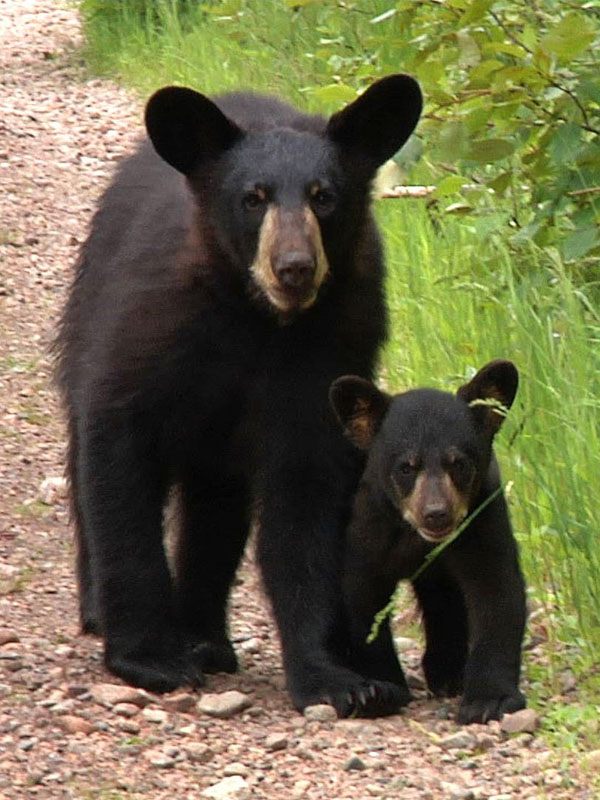 Hope and Faith Hope and Faith6-21-11 |
 Hope and Faith Hope and Faith7-3-11 |
 Hope and Faith Hope and Faith7-12-11 |
 Faith Faith8-3-11 |
 Hope removed her collar Hope removed her collarmoments after this photo - 8-13-11 |
 Hope and Faith Hope and Faith8-15-11 |
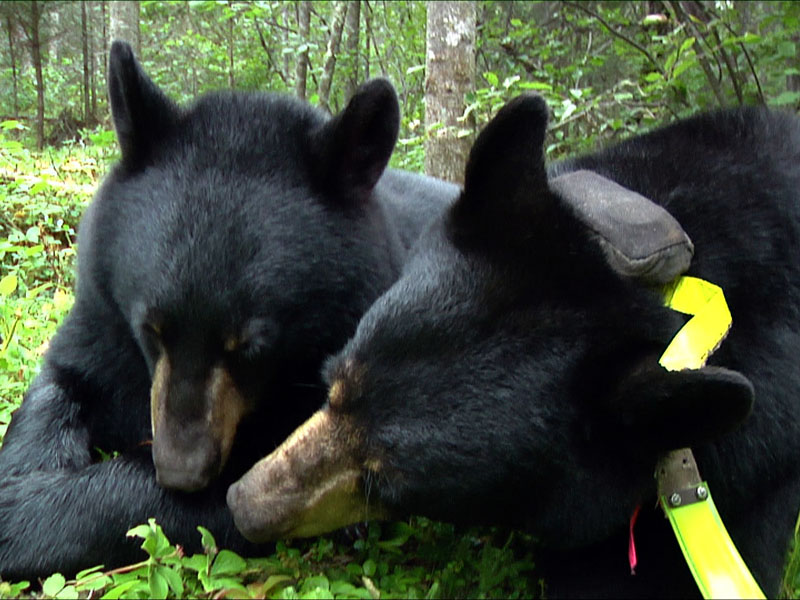 Lily and Hope Lily and Hope9-1-11 |
 Lily and Faith 9-20-11
Lily and Faith 9-20-11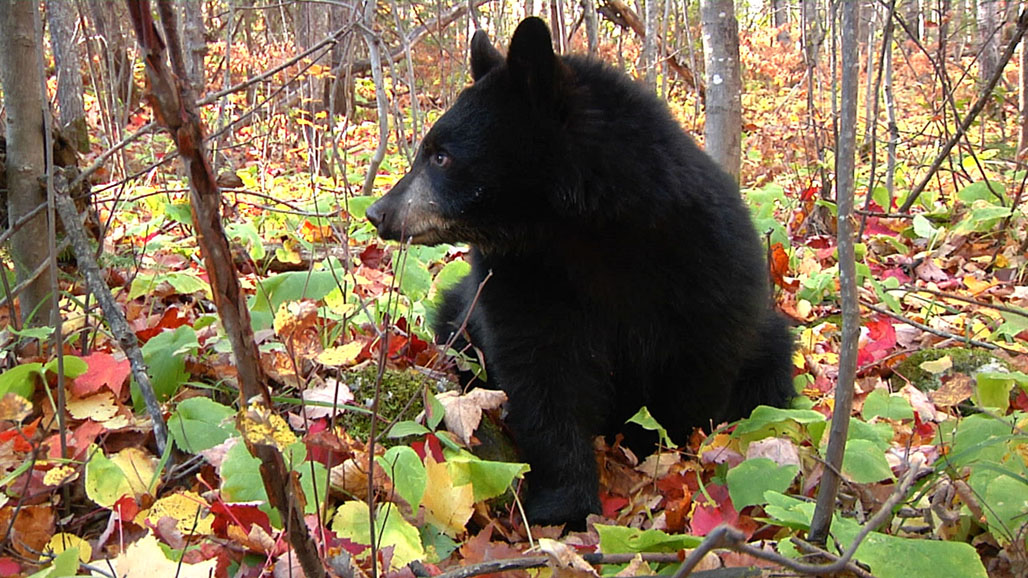 Faith in Autumn leaves - 9-30-11
Faith in Autumn leaves - 9-30-11
 Lily and Faith Lily and Faith9-28-11 |
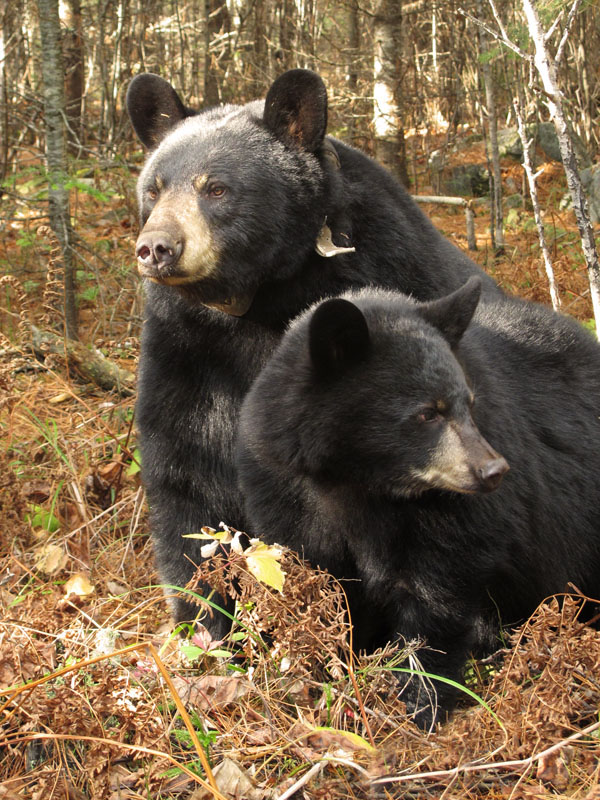 Lily and Faith Lily and Faith10-19-11 |
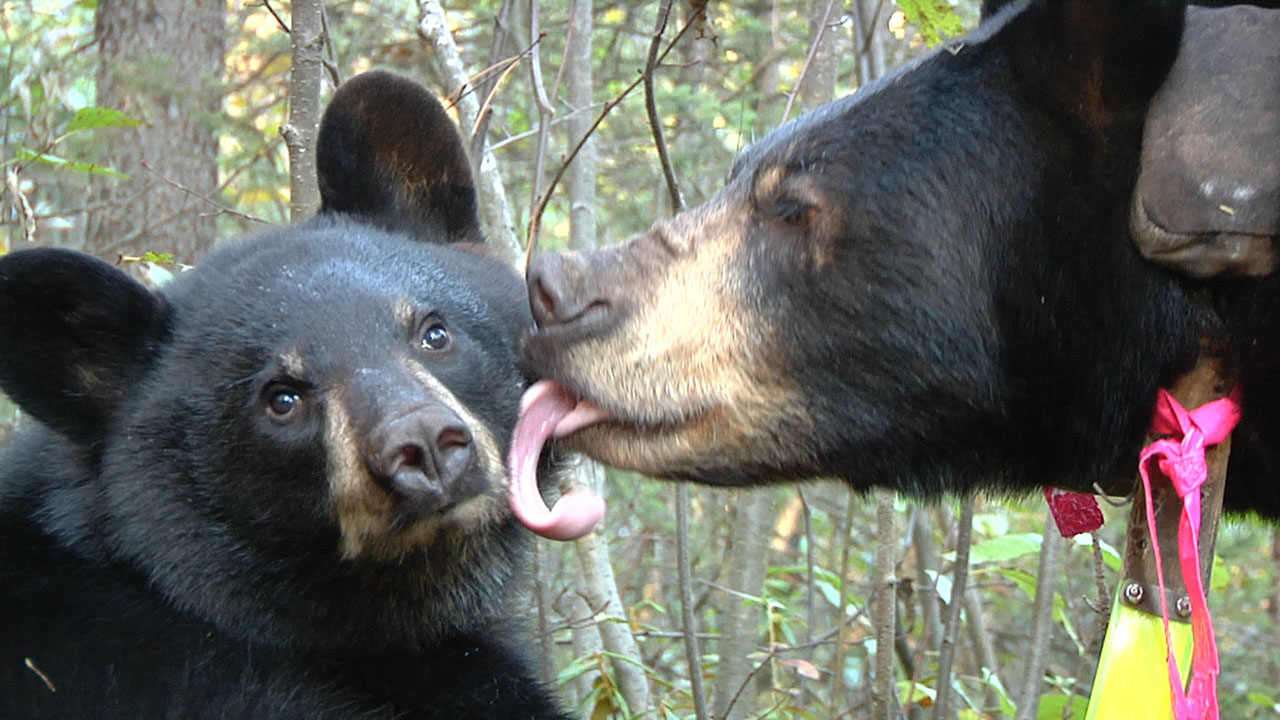 Lily Licking Faith Lily Licking Faith9-30-11 |



